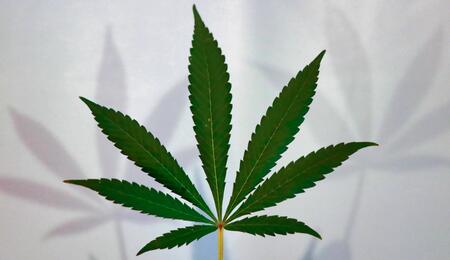The changing face of UK cannabis policy: a game of snakes and ladders

I've had an active interest in UK cannabis policy for longer than many cannabis users have been alive, and I've been a contributor to Soft Secrets now for something like a dozen years. Given both of these, I've been tasked with writing an article looking at how policy has changed since the beginning of this century.
I've had an active interest in UK cannabis policy for longer than many cannabis users have been alive, and I've been a contributor to Soft Secrets now for something like a dozen years. Given both of these, I've been tasked with writing an article looking at how policy has changed since the beginning of this century.
A bit of background. As far as policy goes, through the 1990's, very little changed. On the other hand, the cannabis scene changed radically as resin lost its share of the market to weed. This started off gradually then gained pace from the mid '90's onwards, until resin was all but obsolete by the turn of the century. A point of note here is that the growing techniques that had allowed herbal cannabis to take over the market also contributed (in combination with hybridisation techniques) to a sharp increase in the potency of the product. The days of poor to average strength "home grown" became a thing of the past.
Since 2000 there have been a number of prevalence studies conducted in an attempt to give an idea of the number of cannabis users in the UK. The results of these tend to vary hugely: use has increased sharply, use has decreased sharply, use has remained static except in over 40's and so on. Which one do you believe? One certainty in all of this is that there is always a lot of cannabis about, much of it allegedly supplied by organized professional criminals, so it's not too much of a leap to assume that there is a big demand despite what the prevalence figures say.
2001 saw the introduction of "The Lambeth Pilot Cannabis Scheme" where, rather than be arrested for possession, the cannabis was confiscated and the individual referred to the Youth Offender Team for counselling and support (note: it's interesting how the assumption was made that the users would be "youths"). This is described as "depenalisation" rather than "decriminalisation". While the pilot didn't see an increase in cannabis use, it did save the police considerable time and resources. At the end of the trial period, the whole thing seems to have been quietly shelved.
2003 saw cannabis "downgraded" from Class B to Class C, meaning possession would no longer be an arrestable offence. Again, the idea behind it was to "free up" police time and resources and allow them to focus on serious crime. The change was implemented in 2004.
This caused a lot of controversy within the government of the day and in January 2009 cannabis was moved back to Class B (against the advice of their own experts), where it remains.
What a shambles.
Now it's 2016, and there definitely appears to be a change coming. Some of this change is coming from the ground up with individuals flagrantly flouting the law and finding that nothing is happening to them. There are a number of other factors at play though, some of them quite unexpected, but all of them affecting policy directly or indirectly. Let's take a brief look at some of them.Against change...
Parliament The only groups who appear consistently surprised by the levels of cannabis consumption (both medical and recreational) here in the UK appear to be the politicians and the media, and increasingly this is being regarded by many (myself included) as disingenuous and hypocritical, given how many of them now admit to having used themselves with little or no detrimental effects. The media and politicians have a symbiotic (actually parasitic) relationship, and often it's hard to see who calls the shots. This year a petition of some 200,000 people forced a debate on the legal status of cannabis in parliament. Very few MP's attended this, having apparently been instructed by their parties to "stay away". The whole matter is still regarded by politicians of the two big parties as a sure fire vote loser which indicates how far out of touch they are with the voters. It also indicates a quite astonishing level of contempt for those same voters. The Liberal Democrats are now taking a bold stance on legalisation, but are unlikely to get very far with it as they don't seem to have many heavy hitting media friends. In short, there's very little realistic prospect of parliament listening to the pro-legalisation voices.Big Pharma
This is closely intertwined with medical cannabis. It's been rumoured that the big pharmaceutical companies have been instrumental in preventing the legalisation of cannabis, both at home and abroad (though one could say the same about the alcohol industry). This makes some sense, where these companies are all about profit and shareholders. They spend billions developing drugs and trialling them. All of this has to be recouped. From a financial point of view, something that "cures" could arguably be seen as a bad thing: much better would be something that "works" but doesn't "cure" and has to be taken (and paid for) over a long period of time. What they don't want is something that seems to do - at the very least - the same thing, with less side effects, and potentially at a fraction of the cost; cannabis is, after all, just a plant. Events in America over the past few years make me less sure that this is actually the case. That said, however, in the UK we have a government who seem intent on the commodification of everything, right down to the fundamental essentials of life, in order to turn a profit. It would also appear that there are a number of pretty powerful anti legalisation people in government and the sciences who have interests in the pharmaceutical industry, causing a further impediment.For change...
Medical Cannabis One thing that has become properly, abundantly, and verifiably clear is the medical value of cannabis, and this will be a huge driver in cannabis reform in the future. For many years, the very idea of medical cannabis was largely a source of either concern or amusement to both the mainstream scientific community (the evidence of thousands of scientific papers to the contrary notwithstanding) and to the political classes. But users and people suffering from a range of debilitating medical complaints knew otherwise. The problem was, that for many years, these same people (and we really should now refer to them as "pioneers") were prosecuted for growing and/or possession of a plant they knew was effective in alleviating their symptoms, and mostly without the attendant unpleasant side effects from "licensed" and "sanctioned" pharmaceutical medications. If they were unfortunate enough to be busted, the outcome always seemed to depend on some really quite spurious factors such as where they lived geographically, the mood of the arresting officer, the mood of the judge and the mood of the media (local, national and international) regarding medical cannabis at the time. There rarely seemed to be much consistency to the sentencing and this could range from a fine to a custodial sentence. Anyone even vaguely in the know about this will be aware of the sorts of medical conditions cannabis benefits: AIDS, cancer, multiple sclerosis, arthritis, menstrual cramps and so on. What these have in common is that they are largely physical health conditions. However, a real development in the medical cannabis arena that has become clear over the past decade (and is becoming clearer with every passing week, it seems) is that cannabis also is effective at treating the very conditions it has long been held to actually cause, which is to say mental health problems. For a long time, prohibitionist science held that cannabis "causes" depression and anxiety; there's very strong emerging evidence that this is not the case. Prohibitionist science held that cannabis "causes" schizophrenia and other psychotic illness; again, there's growing a body of evidence pointing to this being incorrect. In fact, it is looking as though some of the many compounds found within the cannabis plant can not only be used as treatments for a range of these illnesses, but may actually prevent their occurrence in the first place (however, this last very much comes down to the balance of THC and CBD found in specific strains). One final point here is that the smoking of cannabis has always been a way of discrediting medical use to an extent as the idea of putting smoke in one's lungs (whether with or without tobacco) was regarded as having questionable therapeutic value. The introduction of cheap and effective vaping devices will see this practice decline.Synthetic Cannabis
The appearance of synthetic cannabinoids and their immediate impacts on mental health have been noted. These appear to be strongly correlated with mental health problems and a number of fatalities. Of note is the fact that in those places where cannabis is legal, synthetic variants have largely disappeared. People want to use cannabis but don't necessarily want to break the law.The Police
Some regional forces decriminalisation while others want full legalisation. It's clear that many of them want a change. A number of police forces in England (such as Durham) have implemented what seems to be ad hoc decriminalisation, whereas other forces continue to adopt the "turning a blind eye" approach. What these informal approaches can mean is that in countries with multi-region police forces (such as England) this inconsistency can lead to "interpretation issues". In Scotland, where they now have one police force for the whole country, a move approved by the lawmakers has been in force since January 2016 where individuals in possession of single amounts (supposedly) up to 1oz will not be arrested. Many are interpreting this as de facto decriminalisation. This move is contrary to the Westminster view of how these things should be properly handled. All of the moves by the police come down to one big factor: money. Which leads us into...Austerity
This may be the deciding factor in where cannabis policy eventually ends up. As mentioned above, the police have called for a review of how cannabis offences are handled because their budgets are being squeezed, and they simply don't have the resources to prosecute cannabis users and low level growers and suppliers. The bigger factor is that there is a real opportunity for cash strapped economies to generate a lot of income, but to do this is going to take an unequivocal change in the law. In 2010, the EU published a statement proclaiming that they (the EU): "...will not block any initiative of EU Member States to start the legal regulation of cannabis and other currently illegal drugs." An EU press release mentioned that the estimated total amount of revenue generated by “a combination of measures” could be between €35 billion and €60 billion to the EU alone. This, in my view, is what will be the ultimate decider in the question of cannabis policy. And this is where the government have their big problem: they love money (it's an ideological thing), but want to keep as much of it as they can for themselves and their pals in big business. As mentioned, cannabis is just a plant, and how do you stop people just growing their own? And there you have it. Running through nearly all of the above is one thing: money. Money, whether it's a lack of it or plain greed is what will ultimately bring the big change, and my own view is that this is a terrible pity. Parting caveat: be careful what you wish for.
S
Soft Secrets



